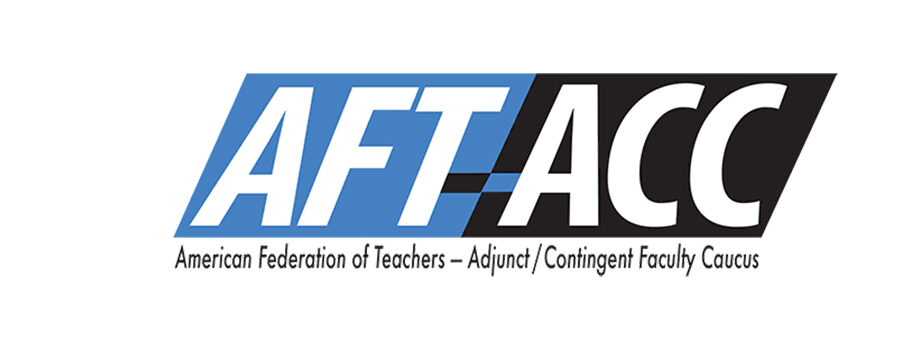

Fellow Adjunct-Contingent Faculty and Allies:
While we are in the early stages of this pandemic, it is abundantly clear that the COVID-19 outbreak has already created the greatest disruption in American Higher Education history, with campuses nationwide being shuttered, and faculty, students and staff being forced to, with minimal preparation and support, work and learn remotely. The rapid spread of the virus, and the need to, for lack of a better word, manage its transmission, have forced administrators and public policymakers to make quick and tough decisions which will have both an immediate and lasting impact.
More than simply being educational providers, colleges, universities, and other institutions of higher learning play a vital and irreplaceable a role in the success, prosperity and growth of their respective communities and the country as a whole. The ability of these institutions to fulfill their mission requires the coordinated cooperation and involvement of students, staff, and faculty.
Of these faculty, a significant proportion, and in many institutions, the majority, work on an “as needed,” or contingent basis, and in addition to receiving lesser pay, benefits, and job security, are given less institutional support, or voice in the shared governance of their respective institutions.
Now, in what is clearly an unprecedented crisis, the vast bulk of higher education instruction is being moved to “remote” learning or online platforms, with little to no time for preparation or training.
Classes transitioned to a remote format are not a substitute for face-to-face instruction and do not equate to face-to-face instruction. Such classes are a mechanism to provide instruction given the current COVID-19 crisis and take preventative measures to ensure social distancing and minimize the outbreak.
In light of the above, to empower these faculty to fulfill their mission in the face of the COVID-19 outbreak, it is essential they:
- Receive full pay for their current assignments and ancillary activities, whether their coursework or duties have been moved to a remote or online format, or cancelled as a result of the COVID-19 outbreak.
- Not lose or see reductions in benefits due to the aforementioned change in assignments or duties as a result of COVID-19 outbreak.
- Not be forced to use up sick leave as a result of the institution’s response to the COVID-19 outbreak, including faculty subject to quarantine, whether voluntary or involuntary, as a result of exposure.
- Be given the sole discretion, as faculty, to determine how their instructional and/or non-instructional workload can be completed remotely.
- Be compensated for additional training needed for the transition classes to a remote format.
- Be, when lacking the proper tools to provide online education, loaned tools by their respective institutions for no charge.
- Not be subject to evaluations that could potentially be used for punitive actions including, but not limited termination or a denial of future teaching assignments be ceased for the length of the outbreak.
- Be able retain their rehire status in the event of class or assignment cancellation caused by the COVID-19 crisis.
- Be able to retain their rights to their own intellectual property, either created for, or moved online to provide remote or online teaching in response to the COVID-19 crisis.
- Be included in decision-making processes regarding curriculum, the delivery of instruction, and their respective institutions’ shared governance process.
- Be made eligible for unemployment compensation as a result of job loss or underemployment due to the COVID-19 crisis.
Further, to protect these faculty who may still be teaching face-to-face courses, or providing instruction in a healthcare setting, it is essential that their institutions put in place proper safeguards to insure they and their students’ safety.
Finally, it should not be lost upon these institutions, their administrators, or public policymakers that the precarity of all higher education faculty working as adjuncts or contingents, including graduate students and non-tenure track faculty, that COVID-19 has only exacerbated an intolerable and unsustainable model for the continued success of higher education. It is therefore incumbent that as the COVID-19 crisis abates, that concerted effort one again be taken up to address the inequities of pay, job security, lack of benefits, institutional support, and inclusion these faculty face.
The post COVID-19 success, prosperity, and growth of our respective communities and country depend upon it.
The AFT-ACC Executive Committee:
Geoff Johnson, President
William Lipkin, Vice President
Leonard Winogara, Treasurer
Arnold Schoenberg, Organizing Chair
Anorld Korotkin, Member-at Large
David Albert, Member-at Large
Print the original document.

This was just discussed in the Pasadena City College Board meeting tonight:
“With the approval of a series of agreements with the college’s collective bargaining units tonight, all PCC employees will receive a three percent salary increase retroactive to July 1, 2019. Trustee Sandra Chen Lau commended the college’s administration for increasing pay for faculty and staff during the coronavirus outbreak and its associated economic uncertainty.”
My question: Does this apply to adjunct professors/instructors? This is unclear by their statement above.
Also, I totally agree to the statement above and did make a comment about these issues to my department when they asked for our feedback about how the “remote teaching” was going. I never did receive one ounce of feedback about it to this day. Just an FYI. Thank you.
Thank you for your time.